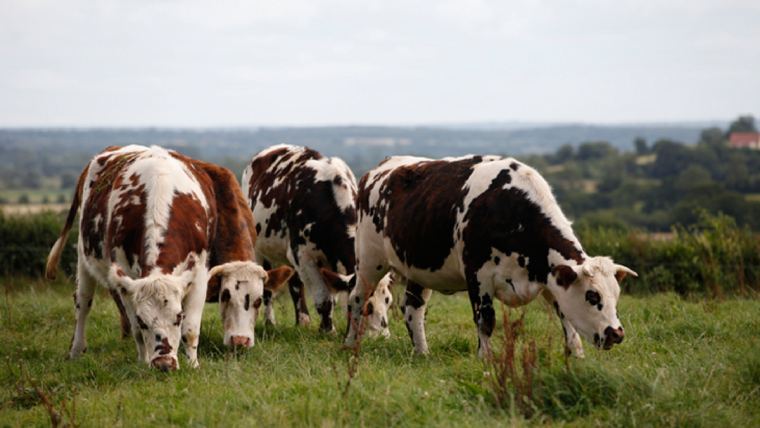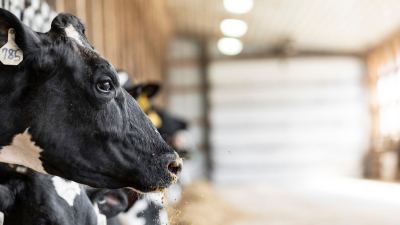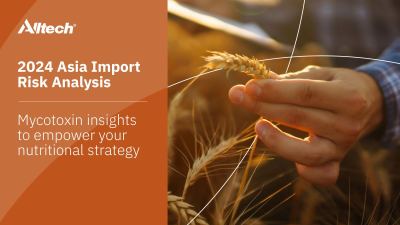Playing fields leveled as EU milk quotas are abolished after 30 years.

What is significant about the end of milk quotas?
April 1st marked an important day in Europe for dairy farmers. However this was no April Fools prank. Farmers are no longer restricted by European Union imposed milk quotas. This means that dairy farmers can now produce as much milk as they wish after 31 years so it’s hugely significant. Milk quota was the single biggest constraint to increasing production up until now, however access to land is now mooted to be the next challenge for most farmers.
So is this a good thing?
With global demand for dairy products increasing by about 3-4% per year efficient and progressive farmers across Europe can now produce milk with greater economies of scale and capitalize on new markets. However, not all farmers are happy as many fear an expansion of EU milk output will flood the market and prices will drop and the less efficient farmers will be forced out of business.
There are only a few countries in Europe that are expected to increase milk output. Ireland is the most bullish of these targeting a 50% increase in milk output by 2020. While this seems like a big increase, most of the additional product is going to be traded on the global dairy market. Given that Ireland is a relatively small player with approximately 1.2 million cows currently, it shouldn’t impact much on the global prices, especially in the medium to long term.
What will be the impact on price and at farm level now that quotas are gone?
Farmers will now continue to milk with many in a position to scale up. It is expected that there will be more ‘price volatility’ owing to competing in the global marketplace with quota removal, however this will level the playing field for all. For 31 years, dairy farmers have had the threat of penalties hanging over them for every liter of milk they produced over their quota allocation. This was quite substantial at 28 c/l. To give an example, Ireland will pay an EU super levy fine of approximately €75 million to the EU for every farmer who produced over their quota paid for. This will be the last super levy many European countries will have to pay so there is massive relief by farmers in general. Progressive farmers across Europe whose business operations have been greatly restricted by this quota system were reported to be having street parties, such was the reaction. Less efficient farmers on the other hand are cautious as the market will dictate the price of milk now and with a projected surge in production to meet growing world demand, the less efficient farmers will indeed be in trouble and perhaps even have to exit owing to profitability challenges.
So does this mean more emissions from more cows with more milk production?
Research conducted by Alltech ECO2 has shown quite the opposite with the more efficient producers showing lower carbon emissions per liter of milk produced on farm. Indeed Alltech has developed the “Alltech Dairy Assist Programme” which can help evaluate the efficiency of the farm and can assist improvements to feeding regimes and general farm practice to help improve efficiency, profitability and sustainability.
So where can I hear more and engage with European dairy farmers and farmers from around the world?
To hear about the impact of EU Quota Abolition and what measures farmers can put in place to capitalize on the new markets while also safeguarding their current business plans, Be a REBEL and join Dairy: Today’s Greatest Business Opportunity at the Alltech REBELation, May 17-20 in Lexington, Kentucky, USA. “In addition to new branding and marketing opportunities, we will discuss daily farm issues such as hiring the right people, passing on the farm to the next generation and being a good neighbor.”
Dairy: Today’s Greatest Business Opportunity will feature key industry leaders such as Jud Heinrichs, Penn State University and Mike Hutjens, University of Illinois. Dairy symposium topics will include:
- Cows: Four-legged machines that can smell up to six miles away: Model the Fair Oaks experience, be a good neighbor and open up your farm to tours.
- Milk: A delivery system for health and wellness: What does Coke’s bet on milk say about the “war on sugar” and their idea of dairy’s future? How does that compare to the way Danone, Kerry Foods and Nestlé are building a business globally? They started with only a supply of milk and a plan.
- A New Profit Center for Dairy Farmers: Tying into the grid with methane.
- Cow Signals: Understanding the needs of the cow in terms of housing, nutrition and care.
- The Dairy Industry - Adding value while avoiding crisis: From casein to lactoferrin proteins and fats for anti-aging to sports drinks - building value while avoiding crisis.
- Auditing your Dairy: What’s your carbon footprint? Do you audit for efficiencies routinely? Can we harness this wasted power to become energy independent?
- Wisconsin Blueprint - Dairy capital of the world: Caring for your greatest asset.
- Nestlé Dairy Farm Institute: A Harvard case study.
- DHA Milk: The Horizon Example - A world of opportunity with DHA.
This special symposium is part of the Alltech REBELation, an event exploring innovation, inspiration and world-changing ideas in Lexington, Ky., USA, from May 17-20. Dairy: Today’s Greatest Business Opportunity begins on May 18. Pre-conference events include an opportunity to savor the best in brews from across the Bluegrass and around the world at the second annual Alltech Craft Brews and Food Fest on May 16. Tours of Kentucky’s horse farms, bourbon distilleries and other sites are offered on Sunday, May 17, along with an international welcome dinner for all conference attendees.
For more information, or to request an invitation, contact a local Alltech representative, visit www.alltech.com/REBELation or email rebelation@alltech.com. Join the conversation on Twitter with #REBELation.















